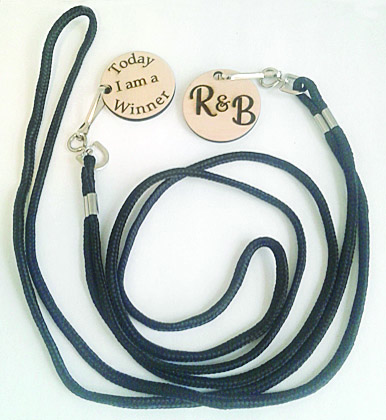I still don’t believe in participation ribbons, but I have changed my mind on how I define participation.
I told my friend that I had changed my mind, and she said “Good. I hope this one works.”
I have said it before, and I will say it again. I don’t believe in participation ribbons. Why reward someone for just showing up? Where is the incentive in that? I can remember taking part in Sports Days when I was in school. I never came in first or second and I doubt that I ever finished in the top ten. I never got a ribbon. Any ribbon. I don’t recall experiencing any trauma because of it, but this was back in the 1900s or whenever it was that I was still in school, and the educators of the day were oblivious to the obvious. Everyone must be rewarded, lest they have their feelings hurt. Nowadays, if you show up, you get a ribbon, regardless of where you finish, regardless of if you even finish.
I don’t believe in participation ribbons, and I can see this participation ribbon idea going to extremes. At the first Olympics, only the winner received a prize. Now, the top three athletes get recognized. Perhaps it is time to address this inequity and award every contestant a medal. After all, they did show up, so that must surely count for something. The podium might get a bit crowded, and because every Nation will need to be recognized, the playing of all the Anthems would take up a lot of time. But no one’s feelings would be hurt, and after all, they did show up, right?
I don’t believe in participation ribbons. You win some and you lose some. Get used to it. A few years ago, I went back to Abbotsford for Christmas and while there, I watched my 9-year-old grandson play hockey. I noticed that the time clock/scoreboard wasn’t working and asked Asher’s Dad how they were keeping track of the time and the score. I was told that it was just a pick-up game, that they had gotten some extra ice time, and that the game didn’t affect their league standings. The game was just for fun and didn’t mean anything. Someone must have forgotten to tell the kids. After the game, Asher came up to me and I said, “Boy, Asher, you sure played hard out there”. He nodded and gestured to me, indicating that I should lean down to his level. I bent down and he glanced around as if to make sure no one was listening, and then whispered. “They weren’t keeping score, but Grandpa, we won!” Even in a game that supposedly meant nothing, the kids played to win. They played like it was the final game in the series, that the Stanley Cup was on the line. They didn’t want a participation ribbon. They wanted to win.
I don’t believe in participation ribbons, but maybe, some days? I was talking to a group of men at AFM (Addiction Foundation of Manitoba) a short while ago. AFM is a rehab facility that offers a 28-day live-in program that helps men who are at the start of their recovery from addiction, and it is where I began my recovery, a little more than two years ago. The men there, that evening, all had different stories and different backgrounds, but they all had one thing in common. They all wanted to break free from their addiction and they wanted to win. I looked at them and remembered when I was one of them, when I was sitting at that table. I remembered how hard it was to admit that I had a problem and that I needed help. I remembered how hard it was to walk through the doors of AFM, how hard it was to attend that first meeting. But I did walk through the front doors, and I did attend that first meeting. I showed up.
I don’t believe in participation ribbons, but I have changed my mind. I still don’t believe in participation ribbons, but I have changed my mind on how I define participation. Maybe, sometimes just showing up does make you a winner. The competition is more experienced than you are, they are stronger, bigger, and don’t have to play by the rules. The ref will never blow the whistle when they have the puck and even the home crowd is against you. But you show up anyway. You lace on the skates and step out onto the ice. You showed up.
What you accomplished yesterday is ancient history, tomorrow is a month away, and today’s game will be 37 hours too long. But you show up anyway. You show up, and that lets you say, “Today I am a winner!”




